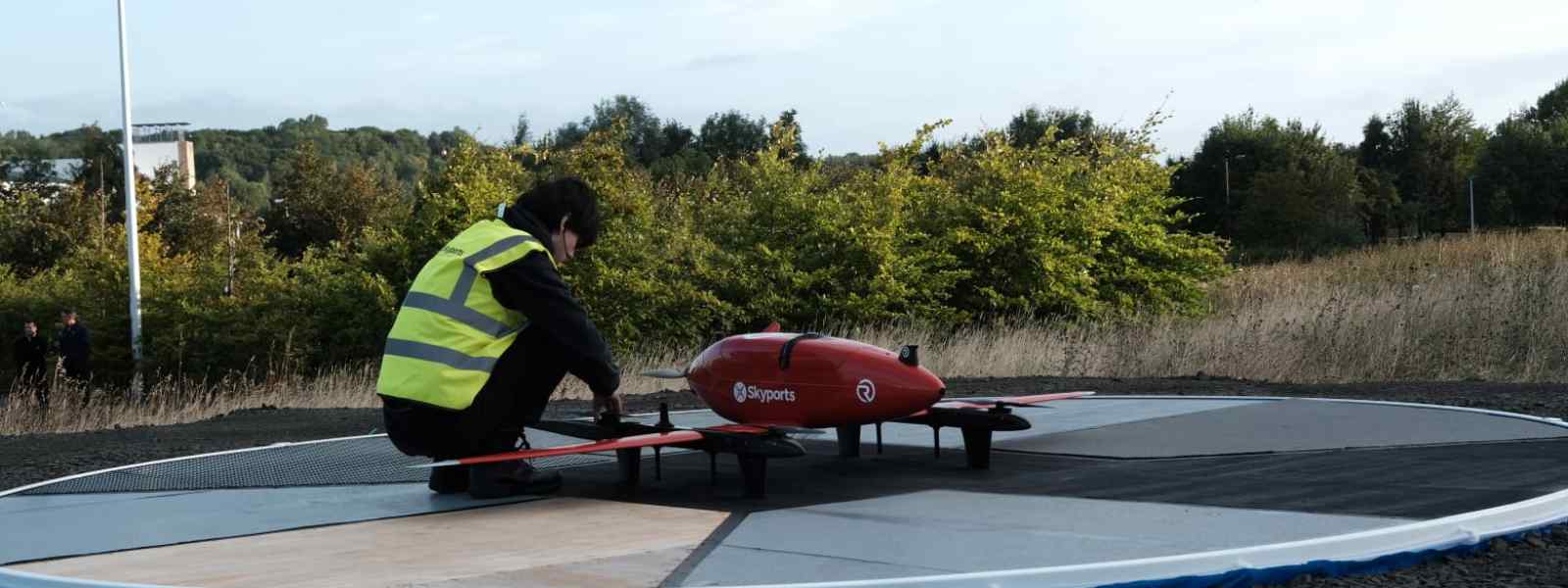
In a ground-breaking first for Scotland, laboratory specimens have been flown from one NHS board to another by drone.
This step forward by the Project CAELUS initiative, led by AGS Airports in partnership with NHS Scotland and involving the University of Strathclyde, took place during a three-week flight trial between NHS Lothian and NHS Borders.
Live flying took place between the Edinburgh BioQuarter next to the Royal Infirmary of Edinburgh and Borders General Hospital in Melrose.
Delivery time
Logistics mean that laboratory samples which inform urgent clinical decision-making and are transported by road can take up to five hours to transfer between NHS Borders and NHS Lothian.
Innovation activity being conducted by Project CAELUS could see this delivery time cut to just 35 minutes, enhancing the transport provision, particularly for rural areas.
Project CALEUS is working with 16 consortium partners, including Strathclyde, to deliver what will be the first national drone network that can transport essential medicines, bloods and other medical supplies throughout Scotland including to remote communities.
Flight trials
The University of Strathclyde’s principal investigator for the project, Dr Marco Fossati, said: “The latest live flight trials mark an important milestone in the journey to developing a national medical transport drone network.”
Fiona Smith, Project Director for Project CAELUS said: “Our consortium has been working extremely hard to get to this stage and we are delighted we have been able to test this important use case for the NHS.
“Transporting laboratory specimens by drone could speed up the clinical decision making, allowing for same day diagnosis and treatment.
“It is also one of the first times in the UK that there has been a demonstration of beyond the visual line of sight medical drone operations transiting between controlled and uncontrolled airspace.
“This is an important milestone for our project and we now look forward to testing more potential use cases by drone across Scotland in the coming months.”
Hazel Dempsey, the CAELUS NHS Scotland programme lead, said: “The NHS is reliant on van logistics that have provided valuable service for decades, however these can take time, travelling hundreds of road miles each day. In some parts of Scotland, patients who live in remote and rural locations are dependent on ferry or airline availability.
This project will enable the NHS to consider if drone technology is viable and able to contribute to improving the health and wellbeing of our population.
CAELUS (Care & Equity – Healthcare Logistics UAS Scotland), is part funded by the UK Research and Innovation (UKRI) Future Flight Challenge, and other partners include Skyports Drone Services, NATS and NHS Scotland.
In the latest live flight trials, tests were also carried out on how NHS staff in future would engage with the drone both physically and digitally.
Since January 2020, the consortium has designed drone landing stations for NHS sites across Scotland and developed a virtual model (digital twin) of the proposed delivery network which connects hospitals, pathology laboratories, distribution centres and GP surgeries across Scotland.